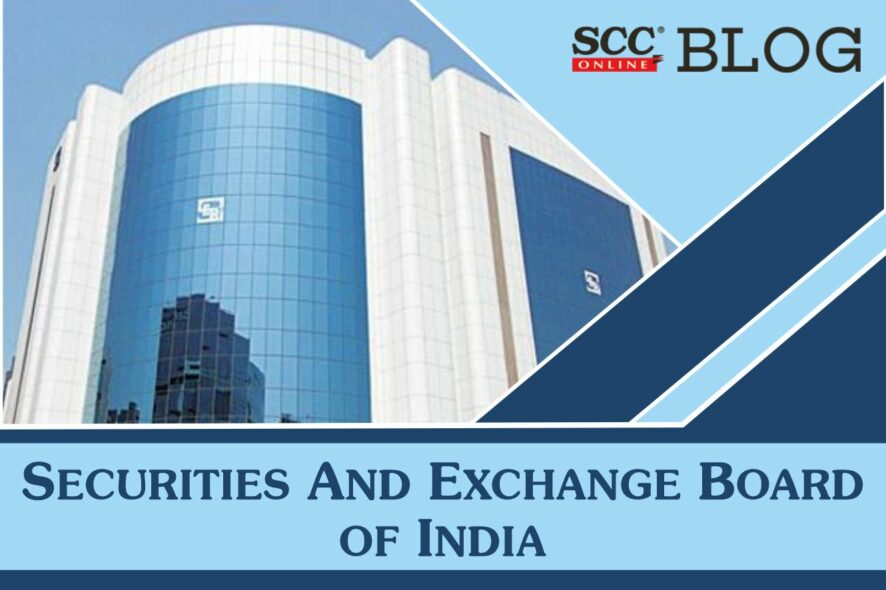Securities and Exchange Board of India (SEBI), Special Court, Maharashtra: In the instant case dealing with unregistered brokerage, Vishal Sadashivrao Gaike, J. deliberated over the issue that whether a delay in filing a complaint against unregistered sub-brokers, can be condoned or not. It was held that, in view of the facts of such cases and seriousness of such allegations (as they are in the instant case), it is in the interest of justice that such a delay be condoned.
Facts:
On 19-06-2001, SEBI received a complaint from a person named J. P. Mittal stating that the accused, Balaji and Co., were dealing in Securities as a sub-broker without obtaining a registration certificate from SEBI and thereby duping its clients by providing fake shares. Consequently, via a letter dated 11-09-2001, the accused was informed about the said complaint and they were directed to seek registration immediately. It was also informed that their failure to do so would result in further violation of the SEBI Act and would subsequently attract penal action. Since there was no reply from the accused,therefore, SEBI filed the present matter under Section 24(1) of the SEBI Act, 1992 against the accused for violation of Section 12 of the SEBI Act. The instant case had been in the pipeline for about 20 years, however owing to the nature of the complaint, SEBI filed the instant application on behalf of the complainant for condonation of delay under Section 473, CrPC.
The accused opposed the present application with two contentions:
(1) There had been a delay of three months and fourteen days i.e., 106 days in filing the complaint.
(2) The schedule of the Economic Offences (Inapplicability of Limitation) Act, 1974 (‘the 1974 Act') does not include the SEBI Act, 1992, hence, the legislative intent to exclude the same is clear. The accused claimed that after cognizance has been taken by the Court, a delay cannot be subsequently condoned. It is also mandatory that before taking cognizance of the offence, the Court has to satisfy itself of the grounds for the extension of time which was not done in the present case. Therefore, the present complaint itself is not maintainable along with the present application which has been filed twenty years after cognizance has been taken.
Analysis and Findings:
The Court heard both sides and placed reliance on a case presented by the complainant, i.e., Sukhdev Raj v. State of Punjab, 1994 Supp (2) SCC 398, In this case, the issue before the Supreme Court was whether the delay in filing the charge sheet can be condoned prior to the conclusion of the trial and particularly before the judgment was delivered. The Supreme Courtheld that, “Section 473, CrPC does not in any clear terms lay down that the application should be filed at the time of filing challan itself. The words ‘so to do in the interest of justice' are wide enough”.
The Court also held that the contention of SEBI, that the SEBI Act 1992 replaced the Capital Issues (Control) Act, 1947, hence the Economic Offences (Inapplicability of Limitation) Act, 1974 applies to the SEBI Act, is unacceptable because the Schedule in the 1974 Act does mention SEBI Act, 1992. When the said Schedule has not been amended by the legislature after the repeal of the Capital Issues Control Act, 1947, then the Courts have no power to read the name of the SEBI Act, 1992 in the same. Thus, a delay has occurred in the filing of the complaint for which SEBI should seek condonation.
The Court observed that the complainant had provided the explanation that SEBI is an autonomous body entrusted with the task of regulating the Securities Market. Before any prosecution is launched, approval of the competent authority is required, and only after the satisfaction of the said authority can a prosecution be launched. The Court noted that the complainant in its application had rightly pointed out that the SEBI Act is a social welfare legislation, and the legislative intent was to promote orderly and healthy growth of the Securities Market and to protect the interest of investors. It has also been observed that while interpreting provisions of a social welfare legislation, the paramount duty of the Court is to adopt such an interpretation so as to further the purpose of law and if possible, eschew the one which frustrates it. Subsequently, the Court accepted the complainant's explanation for the delay in filing the complaint.
Conclusively, the Court held that the delay has been properly explained, and since there are serious allegations against the accused, in the interest of justice it is necessary to condone the delay in filing the present complaint.
[Securities and Exchange Board of India v. Balaji & Co., CNR No. MHCCO2-000792-2015, decided on 02-07-2022]
Advocates who appeared in this case :
Anubha Rastogi, Spl.P.P, Advocate, for the Complainant/ SEBI;
Prashant Trivedi, Advocate, for the Accused.
*Sucheta Sarkar, Editorial Assistant has reported this brief.






